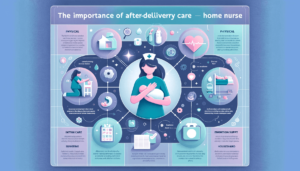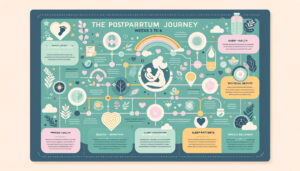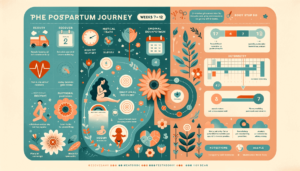Bringing a newborn into the world is a remarkable and transformative experience for mothers. The postpartum period, often known as the “fourth trimester,” can be both joyous and challenging. During this critical time, mothers need adequate care, guidance, and support to ensure their well-being and that of their newborns. This report delves into the indispensable position of the delivery Care Home Nurse in nurturing mothers and babies through the postpartum journey. From the first weeks of motherhood to the early stages of infant development, these compassionate and skilled professionals play a pivotal role in enhancing the well-being of both mother and child.
After-Delivery Care Home Nurse: What Do They Do?
After-delivery care home nurses, also known as postpartum nurses or postnatal nurses, are licensed healthcare professionals specialized in providing expert care and assistance to mothers and newborns during the postpartum period. Their compassionate presence and invaluable knowledge ensure that new mothers receive the support they need to navigate the challenges of early motherhood and baby care.
The Importance of After-Delivery Care Home Nurse

Mothers experience numerous physical, emotional, and hormonal changes during the postpartum journey. The presence of a dedicated after-delivery care home nurse is essential for various reasons:
Physical Recovery Support:
Mothers require proper rest and care after childbirth to recover from the birthing process. A postpartum nurse can monitor the mother’s physical well-being, assist with wound care, and provide guidance on managing postpartum discomfort.
Emotional Well-being:
The postpartum period can be emotionally overwhelming for new mothers. Home nurses offer emotional support, active listening, and a safe space for mothers to share their feelings and concerns.
Infant Care Education:
After-delivery care home nurses provide valuable guidance on newborn care essentials, including breastfeeding, diaper changing, bathing, and recognizing signs of potential health issues.
Breastfeeding Assistance:
Breastfeeding is crucial for the baby’s nutrition and bonding with the mother. Home nurses are trained to offer expert advice and practical help with breastfeeding techniques and problem-solving.
Monitoring Infant Development:
These nurses monitor the baby’s growth and development milestones, ensuring early detection of potential concerns.
Household Support:
Besides caring for the mother and baby, after-delivery care home nurses often assist with light household chores, allowing the mother to focus on her recovery and bonding with her newborn.
After Delivery Care Home Nurse | The Postpartum Journey: Weeks 1 to 2

Mothers undergo significant physical changes and emotional adjustments in the initial weeks following childbirth. Let’s explore how after-delivery care home nurses play a vital role during this crucial time:
Physical Recovery and Rest:
Mothers need ample rest after birth to recover from the delivery process. Home nurses ensure that the mother receives the necessary care, such as wound dressing and pain management, enabling her to rest and heal.
Monitoring and Assessment:
During the first two weeks, the home nurse closely monitors the mother’s vital signs, lochia discharge, and any signs of infection or complications.
Assistance with Breastfeeding:
Home nurses provide invaluable service to new mothers navigating breastfeeding challenges. They guide proper latching, positioning, and managing common breastfeeding issues.
Newborn Care Education:
Supervising a newborn can be daunting for first-time mothers. After-delivery care home nurses educate mothers on newborn care, including feeding schedules, diapers, and hygiene.
Support for Baby Blues:
It is common for mothers to experience mood swings and emotional fluctuations, known as “baby blues,” during the early postpartum period. Home nurses offer emotional support and reassurance to help mothers cope with these changes.
After Delivery Care Home Nurse | The Postpartum Journey: Weeks 3 to 6

As the postpartum journey progresses, the mother’s body continues to heal, and the baby undergoes rapid development. After-delivery care home nurses continue to be a valuable source of support:
Postpartum Exercise and Wellness:
During weeks 3 to 6, the mother may gradually resume light exercises. The home nurse guides safe postpartum activities and wellness practices.
Infant Development Milestones:
Home nurses track the baby’s developmental milestones, such as head control, smiling, and cooing, to ensure healthy progress.
Sleep and Routine:
A sleep routine is crucial for both mother and baby. Home nurses offer tips for creating a bedtime routine that supports healthy sleep patterns.
Family Integration:
As the mother gains confidence in her caregiving abilities, the home nurse endorses the integration of the baby into the family dynamic and promotes bonding between the baby and other family members.
Nutrition for Postpartum Mothers:
Proper nutrition is vital for postpartum recovery and breastfeeding. After-delivery care home nurses provide dietary advice to promote optimal health for the mother.
After Delivery Care Home Nurse | The Postpartum Journey: Weeks 7 to 12

By weeks 7 to 12, mothers and babies have settled into a more established routine. The home nurse continues to play an essential role in fostering a nurturing environment:
Postpartum Checkup Assistance:
Home nurses accompany mothers to postpartum checkups, offering support and ensuring that the mother’s physical and emotional well-being is on track.
Introducing Solid Foods:
As the baby grows, it may be ready for solid foods. Home nurses guide mothers on introducing age-appropriate solid foods and managing food allergies.
Infant Sleep Training:
Sleep training becomes more relevant during this period. Home nurses provide strategies for sleep training and encourage healthy sleep habits.
Promoting Self-Care:
Amidst the demands of motherhood, self-care is crucial. Home nurses remind mothers to prioritize their well-being and mental health.
Addressing Common Concerns:
Home nurses address common postpartum concerns, such as baby colic, teething, and vaccination schedules, with informative guidance and reassurance.
FAQs about After Delivery Care Home Nurse
Q 1: What qualifications do after-delivery care home nurses hold?
After-delivery care home nurses typically hold a nursing degree specializing in postpartum care, infant care, and breastfeeding support. They may also have certifications in neonatal resuscitation and other relevant areas.
Q 2: How long does the after-delivery care home nurse stay with the mother and baby?
The duration of the home nurse’s stay can vary depending on the mother’s needs and preferences. In some cases, they may provide support for a few weeks; in others, they might stay for several months.
Q 3: Can after-delivery care and home nurse help with household chores?
Yes, apart from caring for the mother and baby, after-delivery care home nurses often help with light household chores, ensuring that the mother can focus on her recovery and motherhood.
Q 4: Are after-delivery care home nurses available for first-time mothers?
Absolutely! After-delivery care home nurses are experienced in supporting first-time mothers through the postpartum journey, providing them with the guidance and confidence they need.
Q 5: What other support do after-delivery care home nurses offer besides medical care?
Apart from medical care, after-delivery care home nurses offer emotional support, educational guidance on newborn care, breastfeeding assistance, and resources for postpartum wellness.
Q 6: How can I find a trustworthy after-delivery care home nurse?
To find a reliable after-delivery care home nurse, seek recommendations from trusted healthcare professionals or friends who have had positive experiences. Further, check online studies and testimonials to ensure the nurse’s expertise and compassionate care.
Conclusion
The postpartum journey is a transformative time in a mother’s life. And having the support of an after-delivery care home nurse can make all the difference. These dedicated professionals nurture mothers and babies, providing expert care, emotional support, and valuable guidance. From the first weeks of motherhood to the early stages of infant development, after-delivery care home nurses ensure that this precious phase is met with knowledge, compassion, and a strong sense of care. With their expertise, experience, and genuine concern for the well-being of families, after-delivery care home nurses play an indispensable role in nurturing mothers and babies through the postpartum journey.


